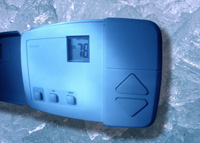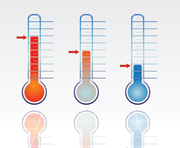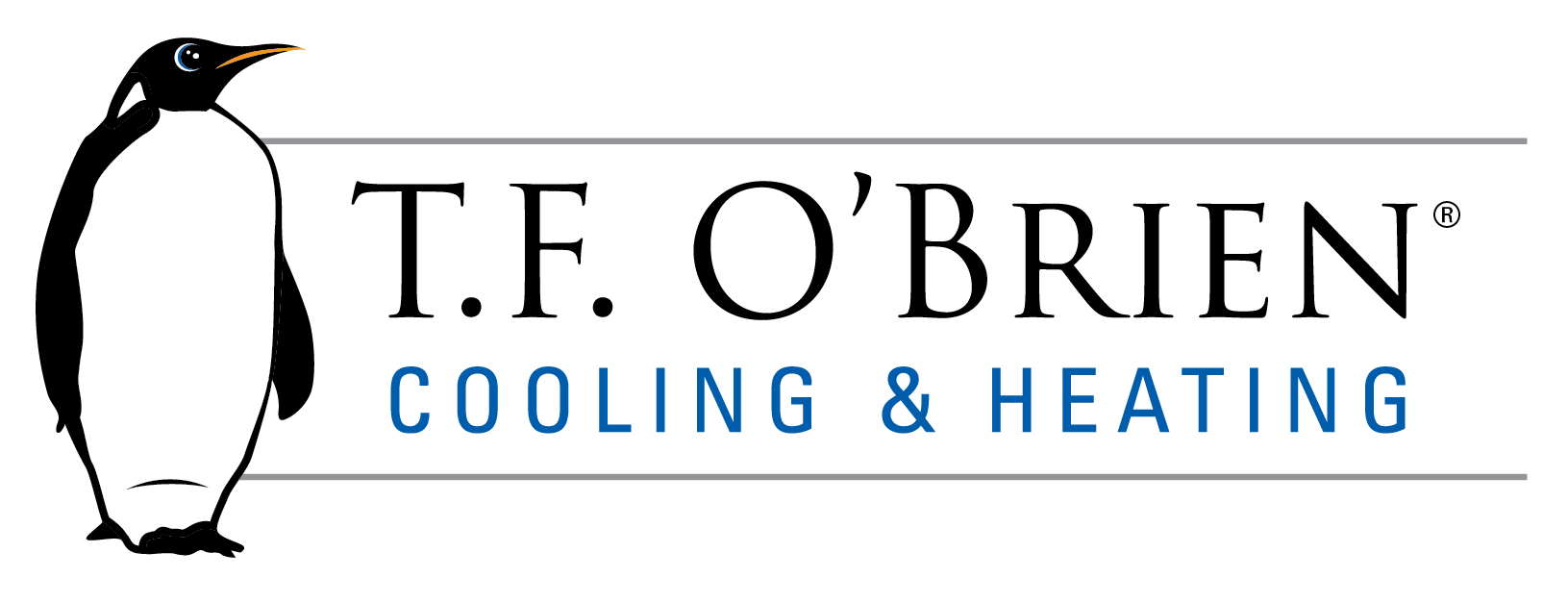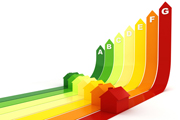Are your cooling bills telling you that this is the last summer for your air conditioner? Or perhaps you haven’t been as cool and comfortable as you would like to be. As summer is winding down, it’s a good idea to start doing research on high-efficiency air conditioners so you are ready to upgrade before the next Long Island heat wave. Continue reading “Cooling Concepts You Should Know When Upgrading Air-Conditioning Systems”
Tag: energy efficiency
Taking A Vacation? Use A Programmable Thermostat To Monitor Your Home’s Temperature
 Customize Your Energy Usage Based on Your Time at Home
Customize Your Energy Usage Based on Your Time at Home
Before you leave for an extended trip, make sure your Long Island home isn’t using an unnecessary amount of energy by running the air-conditioning system the whole time you’re away. The best way to do this is to use a programmable thermostat to regulate the temperature when you’re not home. Continue reading “Taking A Vacation? Use A Programmable Thermostat To Monitor Your Home’s Temperature”
Are My Heating And Cooling Needs Established By Degree Days? Find Out How To Assess Efficiency
 Home Energy Performance: Measuring Your Energy Needs
Home Energy Performance: Measuring Your Energy Needs
As weather fluctuates from day to day, it has a significant affect on how much energy your home consumes. Your electricity meter readings can help you understand the amount of energy you’re using, but can’t give you a good idea of your home’s performance because they don’t account for the changing weather. Learning to calculate heating and cooling degree days can make up for this. Continue reading “Are My Heating And Cooling Needs Established By Degree Days? Find Out How To Assess Efficiency”
Summer Energy-Savings Tips For Long Island Residents
There are a Few Simple Things You Can Do to Get the Most From Your AC
If the Long Island summer heat and humidity don’t make you uncomfortable, your cooling bills just might. But increasing your energy savings doesn’t mean you have to sacrifice comfort. Here are a few summer energy savings tips: Continue reading “Summer Energy-Savings Tips For Long Island Residents”
Air-Handler Options To Increase Efficiency And Comfort For Long Island Homeowners
 Learn Why a Variable Speed Air Handler Might Be a Perfect HVAC Upgrade
Learn Why a Variable Speed Air Handler Might Be a Perfect HVAC Upgrade
This summer is shaping up to be a brutal one on Long Island. Having an air conditioner that can go the distance is important. With rising fuel prices, it’s also important to save as much energy as possible. Continue reading “Air-Handler Options To Increase Efficiency And Comfort For Long Island Homeowners”
Sizing Can Mean The Difference Between Efficient Air Conditioning And Frustration
Our Trained HVAC Technicians Use Data to Find Proper AC Sizing
When you’re thinking about purchasing an air-conditioning system, the first thing to do is determine the size you need. This will help keep your Long Island home comfortable and your energy bills low. Continue reading “Sizing Can Mean The Difference Between Efficient Air Conditioning And Frustration”
Troubleshooting Tips For Your Heat Pump
Learn What to Do If Your Heat Pump is Not Working Correctly
Heat pumps are a great way to save energy. They combine heating and cooling systems by using energy taken from the air outside. Instead of heating cold air, heat pumps just move heat around, meaning they can be 30 to 40 percent more efficient than an air conditioner according to the U.S. Department of Energy. Continue reading “Troubleshooting Tips For Your Heat Pump”
High Efficiency Furnaces More Than Just a New Model
Save Money and Energy With New HVAC Technology
Furnaces have come a long way in the past 15 years. Systems that were once gas guzzlers have become vastly more efficient, saving you money on your heating bills.
Every furnace has a rating based on the unit’s annual fuel utilization efficiency, or AFUE. A furnace’s AFUE is the percentage of heat created compared to the amount of energy used.
Numbers that used to hover between 60 to 70 percent have become dramatically higher over the past decade. As of now, it is not uncommon to find new furnaces that break the 95 percent mark.
It is for this reason that high efficiency furnaces are a good investment. When a new furnace is properly sized for the area of your house, Your heating bills can drop in half, according to the Department of Energy, with a new furnace.
Here are some tips on deciding whether or not to upgrade to one of these new, high efficiency furnaces.
- What are the maintenance costs of your current system? As furnaces get older, they grow more likely to break. If repairing them grows daunting, a new low-maintenance furnace can be an option.
- Does your furnace have a pilot light? If you can see the flame in your furnace, you can see your fuel costs going up. Many new furnaces are designed without the constant fuel use of a pilot light. They use electrical ignition instead.
- Check the sizing on your furnace. Many old furnaces are oversized. This means that they are too big for the house where you need them and spend more energy than you need to. It also means they are more difficult to maintain. The Department of Energy has some guidelines about how your contractor should size your home.
Finding a contractor you can trust is the most important task when installing high efficiency furnaces.Energy costs are rising, but technology has found ways to help us save money. High efficiency furnaces are just one example. If you have any questions, feel free to contact the professionals at T.F. O’Brien. They are more than happy to help.
Our goal is to help educate our customers about energy and home comfort issues (specific to HVAC systems). For more information about high efficiency furnaces and other HVAC topics, click here to download our free Home Comfort Resource guide.
T.F. O’Brien services the Long Island, New York area. To get started, get a quote from us or check out our special offers.
Faced with Repair or Replace Decision? Some Tips!
Is Your Furnace Not Doing the Job Any More? Things to Think About:
Homeowners often face the decision of whether to repair or replace their furnace. Before making this important decision, answer the following questions:
- Is your system in overall good condition? If so, it might be more cost- effective to repair it.
- How long are you planning to live in your home? If you are moving within a couple of years, evaluate whether a new system will increase the value of your home. If the cost outweighs the investment value, consider repair. If you are planning on living in your home for many more years, consider the benefits of a more energy efficient system.
- Have you addressed insulation and duct work? Proper insulation and seals can save up to 20 percent on your energy costs.
- Are you using a programmable thermostat? A programmable thermostat can save up to 30 percent in energy costs.
- Have you performed the Home Energy Yardstick? Use this tool to score your home’s energy efficiency.
Consider repairing if:
- Your system is less than 15 years old.
- The repair is under $500.
- The overall condition of your system is good.
- Your energy bills are reasonable and not concerning.
- Your Home Energy Yardstick score is 5 or above.
Consider replacing if:
- Your system is over 15 years old.
- Your system needs frequent repairs.
- Your Home Energy Yardstick score is less than 5. If the energy savings of a more efficient unit will cover all or part of your investment, consider replacing it.
- Your utilities costs are constantly rising.
- You are concerned about air quality. Consider replacement with an energy-efficient system that can reduce the potential for air contaminants like mold, bacteria, and dust.
A general rule of thumb that can be helpful in deciding whether to repair or replace your furnace is to add up your energy costs for the past winter and multiply by 20 percent. Divide that number into the cost of buying and installing. This is an estimate of how many years it will take to recoup your investment.
Of course, you can also count on T.F. O’Brien for expert advice on repairing vs. replacing your furnace. We can walk you through the options and help you make an educated decision. Call us if we can help.
A Professional Evaluation Can Be Your First Step to Energy Savings
We all want to save money on our utility bills. It can be a shock to see the total on your bill in the sweltering summer season or the freezing winter. For New Yorkers, temperature extremes are a fact of life – but high energy bills do not have to be.
In order to keep more of your hard-earned money, you need to make sure your home is energy efficient. It can be very complicated to locate all the areas of your home that need an energy tune-up, then decide the best way to fix them. The good news is that you don’t have to take care of this on your own. Just call your local home energy expert for an energy savings consultation and home evaluation.
Your Home Energy Audit
Using specialized equipment, a certified professional will walk through your home and also inspect the inner workings of your heating, cooling and ventilation systems. HVAC inspectors are trained to spot areas in your home that are not properly insulated and locate any wasteful or potentially dangerous leaks in your system. They can also alert you to small problems before they turn into big repair bills.
In just a few minutes, you will have the results of your energy audit – a concise list of issues that are standing between you and big energy savings. After assessing your home’s energy needs, the inspector will recommend simple, straightforward solutions to improve your home’s energy efficiency. At this point, you will have an estimate of the amount you could save on your monthly bills.
T.F. O’Brien services the Long Island, New York area.
Our goal is to help educate our customers about energy and home comfort issues (specific to HVAC systems). For more information about preventive maintenance and other HVAC topics, please download our free Home Comfort Resource guide.

